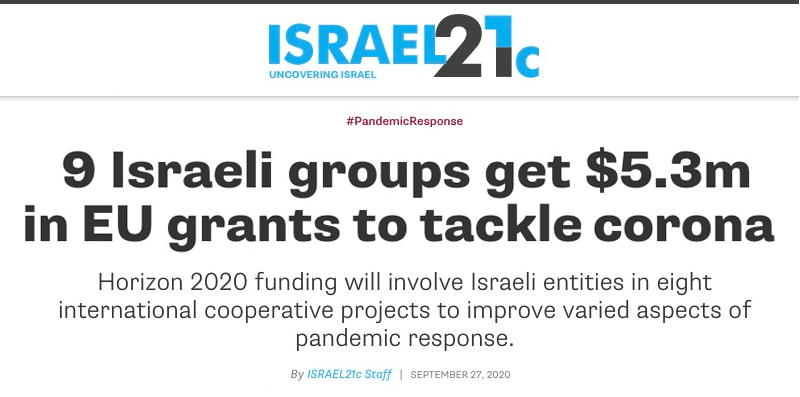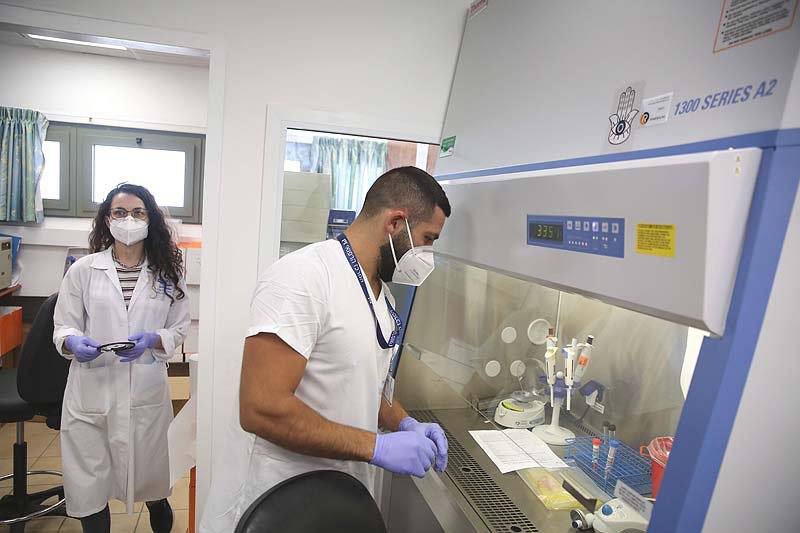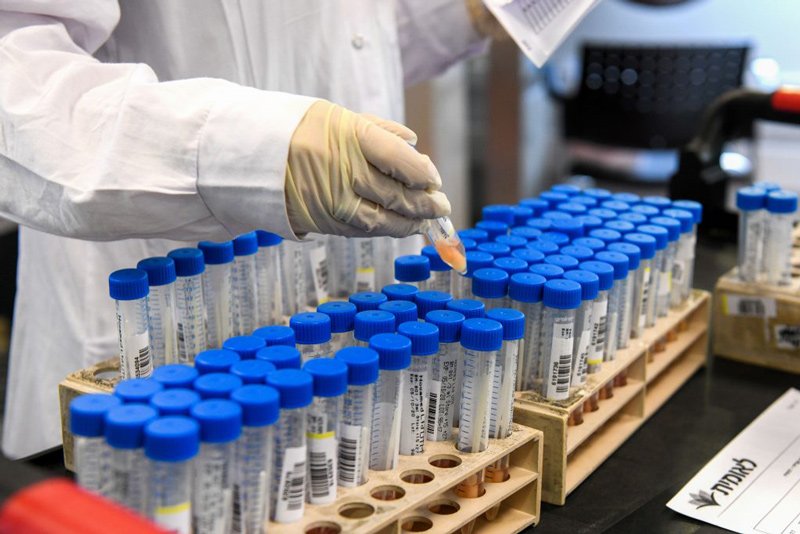

The Israel-Europe Research and Innovation Directorate (ISERD) at the Israel Innovation Authority announced that nine Israeli groups have won €4.5 million ($5.3 million) from the European Union’s Horizon 2020 program to take part in collaborative projects in response to the coronavirus outbreak.
Each project will have at least three partners — including research institutes, NGOs, governmental entities or companies — from three different countries.

The solutions can be in the fields of manufacturing medical equipment using converted production lines; inventing medical technologies, digital instruments and artificial intelligence (AI) for treatment, monitoring and follow-up; dealing with social and economic effects of the pandemic; or building databases of patients for future response to emerging health threats.

“The program enables Israeli participants to compete, in collaboration with outstanding European partners, for extensive grants which support long-term R&D and test applications of proposed solutions in a variety of fields together with potential customers,” said Ami Appelbaum, chairman of the Board of the Israel Innovation Authority and of the ISERD Steering Committee.
- Sanolla put together a collaboration with fellow Israeli company Natali and seven European entities to develop a 10-second test that remotely monitors coronavirus patients and chronic heart or lung disease patients based on bodily sounds inaudible to the human ear. This would rapidly identify people who should be isolated or treated.
- SKM Aeronautics will work with 21 partners from academia, research and industry on a project to rapidly transform production lines to manufacture products required during emergency deployment, such as multiple-use protective silicon masks with unique anti-bacterial textures and internal, single-use filters.
- PhotosonicSys and six partners are developing a small, portable and inexpensive virus testing device based on light-sensing technology. These tests could be conducted at the point of treatment without the need to send the sample to a laboratory.
- University of Haifa Professors Sara Rosenblum, Naomi Josman and Sonia Meirare working with eight partner entities to build an empathetic, personalized platform to do assess adults and children with disabilities and tailor individualized intervention programs for improving mental and physical health during the pandemic.
- Hebrew University Prof. Howard Litvin and 14 partners from 12 countries will use European SHARE survey data to research the indirect effects of decisions taken to mitigate the corona epidemic. The team will focus on identifying inequalities in access to health services, understanding the impact of lockdowns on the population and on employment, and determining the effects of lockdowns and the pandemic in general on social inequality.
- MDM Projects and six partners will produce sophisticated air purification and disinfection devices for medical centers and clinics.
- Siemens Israel and 20 partners are developing a software system enabling production centers across Europe to quickly locate suppliers, manage orders and control production processes of 3D-printed medical devices, products and spare parts.
- Magen David Adom and 16 partners will examine the response to the Covid-19 pandemic at government, public-health and media levels, as well as the impact of the pandemic on vulnerable population groups. Guidelines and recommendations will be developed to ensure that the different needs of vulnerable population groups will be taken into account in the event of additional outbreaks.
